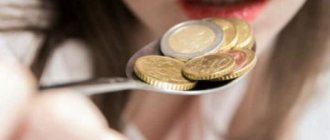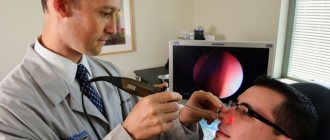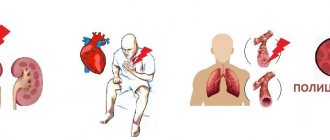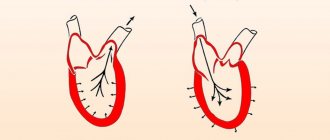general characteristics
From time to time, an unpleasant taste occurs in healthy people.
It can be caused by the accumulation of food particles due to insufficient oral hygiene, or the consumption of foods with a bright, rich taste. In most cases, the symptom is caused by pathological causes. A bitter taste is felt in the mouth mainly in the morning, immediately after waking up. Unpleasant sensations bother a person for several hours and do not disappear after rinsing the mouth with water. Bitterness or a feeling of sourness are accompanied by heartburn and a sore throat.
In this case, the oral mucosa dries out, the saliva is viscous, and is released in smaller quantities. Sometimes patients complain of a strong chemical or metallic taste that lasts throughout the day. If symptoms appear with a certain frequency or constantly, you need to visit a specialist.
Treatment tactics vary and depend on the following factors:
- stages of tooth decay;
- the degree of spread of the inflammatory process to soft tissues;
- condition of root canals.
Treatment options for a tooth under a crown:
If the tooth stump has been preserved and has not undergone a carious process, the layers inside the crown are cleaned and, depending on the condition, it is either replaced with a new one or returned to its place after restoration.
When the upper part of the tooth is destroyed, but the roots are healthy, the stump inlay method is used. This is an orthopedic structure with “legs” that are fixed in the canals of the tooth, and an artificial crown is installed on top.
If the putrefactive process has gone too far and the tooth is completely destroyed, it is removed. As a rule, with long-term inflammation, the soft tissues surrounding the problematic tooth also suffer. Therefore, before proceeding with prosthetics, periodontitis is treated. There are two ways to restore a lost tooth: implantation or a bridge.
When choosing a dental clinic where you plan to get dentures, be sure to find out whether the medical institution provides guarantees for the treatment performed. If damage to the prosthesis occurs during the warranty period due to a medical error, treatment and restoration of the orthopedic structure is carried out free of charge.
Causes of taste in mouth
Causes of blood taste in mouth
This symptom occurs when you accidentally bite your cheek or tongue until it bleeds. The characteristic taste in the mouth, repeated several times a week, is due to pathological reasons. The main diseases that cause a taste of blood in the mouth are:
- Dental diseases
: gingivitis, stomatitis, periodontitis. - ENT pathology
: sinusitis, chronic atrophic rhinitis. - Damage to the gastrointestinal tract
: erosive esophagitis and gastritis, peptic ulcer, dilation of the esophageal veins. - Cardiovascular disorders
: hypertension, angina, vasculitis. - Rare causes
: tuberculosis, lung cancer, bronchial asthma.
Causes of bitter taste in mouth
Bitterness is most often felt in the morning, but sometimes the symptom bothers the patient during the day. The bitter taste is accompanied by nausea, loss of appetite, sometimes vomiting with bile, and a specific unpleasant smell of rotten breath. A bitter taste in the mouth can be caused by the following reasons:
- Age-related mucosal atrophy in the elderly
. - Pregnancy
. - Bad habits
: smoking, alcohol abuse. - Liver pathologies
: autoimmune, viral or toxic hepatitis, cirrhosis, fatty degeneration. - Damage to the biliary tract
: cholecystitis and cholangitis, bile duct dyskinesia, cholelithiasis. - Gastrointestinal diseases
: functional dyspepsia, chronic gastritis, duodenitis. - Neurological disorders
: consequences of traumatic brain injury, residual manifestations of stroke, Alzheimer's disease. - Iatrogenic conditions
: placement of fillings, dental prosthetics. - Complications of pharmacotherapy
: treatment with chemotherapy drugs, antihistamines, antibiotics.
Causes of metallic taste in mouth
An unpleasant sensation is more often observed after consuming untreated tap water that passes through poor quality pipes covered with rust. The taste of iron also appears when cooking or storing food in aluminum cookware. Possible pathological causes of a metallic taste in the mouth:
- Anemia
: iron deficiency, B12 deficiency. - Foreign bodies
: piercings on the tongue or lips, low-quality metal dentures. - Hormonal changes
: pregnancy, menopause. - Chemical poisoning
: mercury, lead, copper, arsenic. - Exposure to radiation
. - Diseases of the urinary system
: chronic glomerulonephritis, interstitial nephritis, renal failure. - Gastrointestinal diseases
: esophageal erosion, bleeding gastric ulcer, esophageal varicose veins. - Complications of pharmacotherapy
: taking antiprotozoal, antacid antihypertensive drugs.
Causes of sweet taste in mouth
A constant taste of sweetness is observed in people who abuse confectionery and chocolate. If the symptom is not associated with food intake, unsweetened foods predominate in the diet, this indicates serious problems. The main reasons for which a sweet taste appears in the mouth:
- Diabetes
. - Pregnancy, gestational diabetes
. - Dental diseases
: caries, periodontitis, stomatitis. - Diseases of the digestive system
: chronic pancreatitis, GERD, hyperacid gastritis. - Exposure to pathogenic microorganisms
: Pseudomonas aeruginosa, staphylococci and streptococci. - Neurological disorders
: damage to the facial nerve, chronic stress. - Pesticide poisoning
.
Causes of acetone taste in the mouth
A sharp chemical taste is often the result of changes in metabolic processes and the accumulation of ketone bodies. This symptom does not occur normally and always indicates serious disturbances in the functioning of the body. The unpleasant smell and taste of acetone in the mouth is caused by the following reasons:
- Following a low-carbohydrate diet
. - Endocrine diseases
: diabetes mellitus and its complication - ketoacidotic coma, thyroid dysfunction. - Kidney damage
: glomerulonephritis, acute and chronic renal failure, necronephrosis. - Liver pathology
: fibrosis and cirrhosis, Wilson-Konovalov disease, neoplasms.
Diagnostics
If an atypical taste is occasionally or constantly felt in the mouth, consultation with a gastroenterologist is required. The symptom is caused by various reasons, therefore, before laboratory and instrumental examination, you should carefully collect anamnesis and accompanying complaints. The greatest diagnostic value is:
- Blood tests
. A standard blood chemistry test reveals the accumulation of ammonia and ketone bodies, which often cause an unpleasant taste in the mouth. Clinical analysis can detect a decrease in hemoglobin, changes in the size and shape of red blood cells, which is characteristic of anemia. If necessary, toxicological analysis is carried out. - Hormonal profile
. If patients complain of a sweetish sensation in the mouth, fasting sugar levels are measured. The results of an oral glucose tolerance test are indicative. To clarify the form of diabetes, the concentration of insulin and C-peptide is taken into account. If glucose levels are normal, it is recommended to determine the level of thyroid hormones. - ENT examination
. During the study, the condition of the mouth, throat, and nasal passages is examined. Frequent findings are signs of chronic inflammation, purulent or whitish deposits on the mucous membrane. Bloody crusts are sometimes found in the nose. If carious teeth or bleeding gums are detected, a person is referred to a dentist. - Endoscopy
. The causes of unusual taste sensations, which are combined with abdominal pain and painful heartburn, are diagnosed using FGDS. During endoscopy, inflammatory and destructive processes in the gastric mucosa, insufficiency of the cardiac sphincter with the flow of acidic contents into the esophagus are visualized. - X-ray imaging
. To exclude ENT causes of a persistent unpleasant taste in the mouth, an x-ray of the paranasal sinuses is performed. Excretory urography is indicated for patients with swelling, lower back pain and other signs of kidney damage. To study the condition of the intestines, a barium passage x-ray is prescribed. - Additional methods
. In women, levels of sex hormones must be examined; in young patients, the level of human chorionic gonadotropin is additionally assessed to confirm or exclude pregnancy. If lung cancer is suspected, especially in men with a long history of smoking, bronchoscopy with collection of material for cytomorphological analysis is required.
If you have an unpleasant taste in your mouth, it is important to maintain oral hygiene
Symptoms of tooth decay under the crown
The first sign of an inflammatory process under a prosthesis is not pain, as many people think, but an unpleasant odor. This happens because at the stage of preparation for prosthetics, the tooth is usually depulped, that is, the neurovascular bundle, which is responsible for sensitivity, is removed.
- An unpleasant taste first appears in the mouth, then a putrid odor is added, which cannot be masked by any chewing gum or mouthwash.
- The patient discovers a gap between the crown and the gum, where food debris gets in, which becomes a breeding ground for microbes.
- Often, inflammation of the gums develops near the tooth with the formation of soft tissue swelling.
- If the tooth has not been pulped, then severe pain is present.
- Blackening of the tooth under the crown.
All these symptoms indicate an advanced putrefactive process in the tooth covered with a crown. You should immediately seek medical help from a dentist.
Ignoring the problem leads to dire consequences:
- formation of a purulent cyst at the apex of the root;
- complete tooth destruction;
- the formation of periostitis or gumboil;
- spread of purulent infection along with blood or lymph flow to other organs.
Treatment
Help before diagnosis
Many patients feel relief after rinsing their mouth with water and a small amount of lemon juice or a weak solution of soda. It is important to maintain oral hygiene: brush your teeth thoroughly 2 times a day, rinse your mouth with water after each meal, and use dental floss if necessary. In order not to suffer from bitterness in the morning, you should refrain from fatty foods and smoked foods at dinner.
Pregnant women are advised to eat often, in small portions, so as not to overload the gastrointestinal tract. After eating, you should not take a horizontal position or engage in physical labor. If an unpleasant taste in the mouth is accompanied by dyspeptic disorders, pain or a progressive deterioration of the general condition, it is important to consult a doctor in time to determine why the taste occurs in the mouth.
Conservative therapy
A specific taste occurs in many diseases, so only the main directions of therapy can be identified, and the selection of an individual set of therapeutic measures is carried out by a specialist. When caries is detected, treatment by a dentist is indicated: usually, after the elimination of chronic foci of infection, the unpleasant taste disappears. Most often used in therapeutic regimens:
- Antiseptics
. Regular rinsing of the oral cavity with a solution of chlorhexidine and its analogues ensures moisturizing and cleansing of the mucous membrane, and prevents the proliferation of pathogenic microorganisms. For stomatitis with pain, solutions of local anesthetics are used. - Antacids
. If the symptom is due to hyperacid conditions, modern non-absorbable drugs that quickly reduce acidity are recommended. A course of treatment with antisecretory agents is often required to achieve a lasting effect and healing of mucosal defects. - Choleretic drugs
. In case of biliary pathology, the composition of bile is improved and its release into the duodenum is stimulated, due to which the bitterness disappears. The drugs can be combined with hepatoprotectors to protect the liver from the effects of bile acids. - Antidotes
. Heavy metal poisoning is an indication for the prescription of specific complexones that bind and remove toxic substances from the blood. To speed up detoxification, large volumes of crystalloid solutions are administered intravenously.
Which doctor should I contact for diagnosis?
to visit the dentist as soon as possible .
If the dentist does not find dental problems, you need to go to an otolaryngologist . The doctor will examine you and refer you for examination, after which he will make a diagnosis.
Note! Among the main diagnostic measures are:
- visual examination of the larynx;
- performing endoscopy to assess the condition of the nasal cavity;
- examination of the oral cavity to detect plaque on the tongue and mucous membrane.
For a detailed study of the patient’s condition, a bacteriological examination of a throat smear, a general blood test , and diagnostics are carried out in the office of a pulmonologist or gastroenterologist.
The most accurate information will be provided by bacterial culture , the results of which can determine which pathogenic microorganisms caused the inflammatory process.











